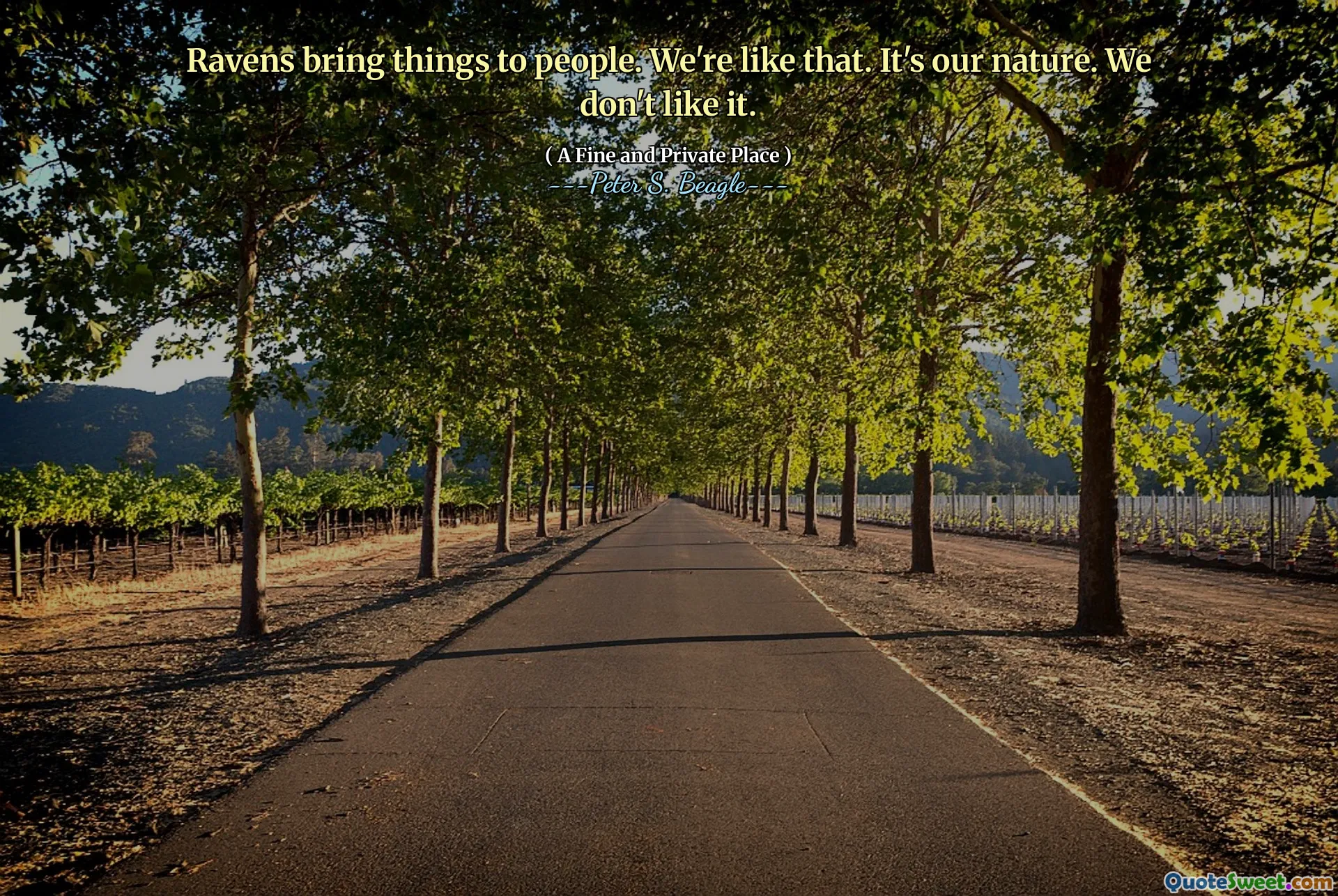
Ravens bring things to people. We're like that. It's our nature. We don't like it.
This quote encapsulates a profound metaphor about human nature and our inherent tendencies which can often be uncomfortable or unwelcome. The imagery of ravens bringing things to people suggests a natural impulse or duty—an unavoidable instinct to share, reveal, or carry something forward. This act, while natural and perhaps necessary, is paradoxically met with resistance and dislike. It speaks to the duality of human experience: the tension between what we are compelled to do or be, and our emotional response to that compulsion.
From a psychological perspective, the quote touches upon the conflict between our nature and our acceptance of it. The acknowledgment "We don't like it" conveys a universal truth about dissonance between self-awareness and self-acceptance. It is a poignant reminder that many aspects of ourselves — our actions, desires, or roles — might clash with how we wish things to be, yet they remain integral parts of who we are.
The choice of the raven as a symbol is also significant. Ravens are often associated with mystery, intelligence, and omens in literature and mythology. By comparing people to ravens that deliver things, the quote evokes the idea that humans, like these birds, carry messages or burdens that affect others. The discomfort, then, might stem from the weight or implications of what is brought forth.
In a broader existential context, this statement reflects the complexity of authenticity and the burden that comes with being truth-bearers or agents of change. It invites readers to reflect on their own nature, the things they are compelled to reveal or deliver in life, and how they reconcile that with their feelings about those actions. The quote's succinctness belies the depth of introspection it encourages, positioning us to think about the paradoxes within our character and the often uneasy acceptance of our innate propensities.





